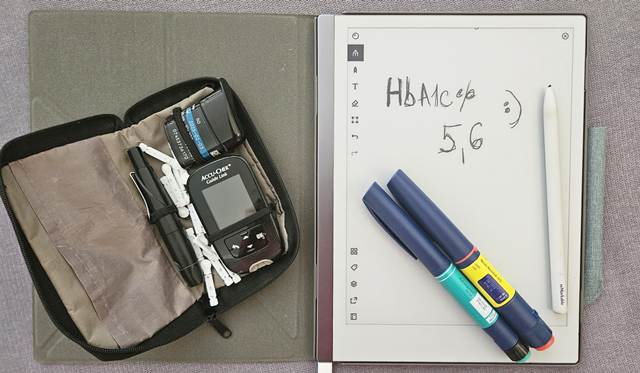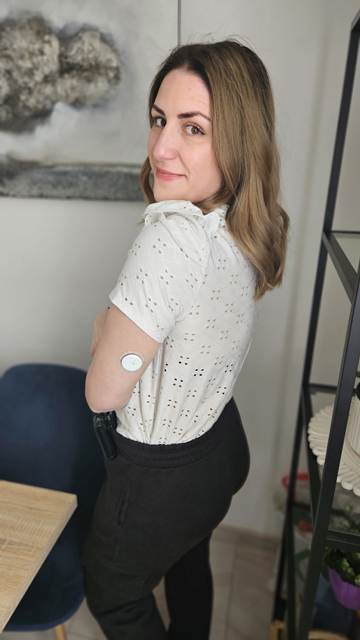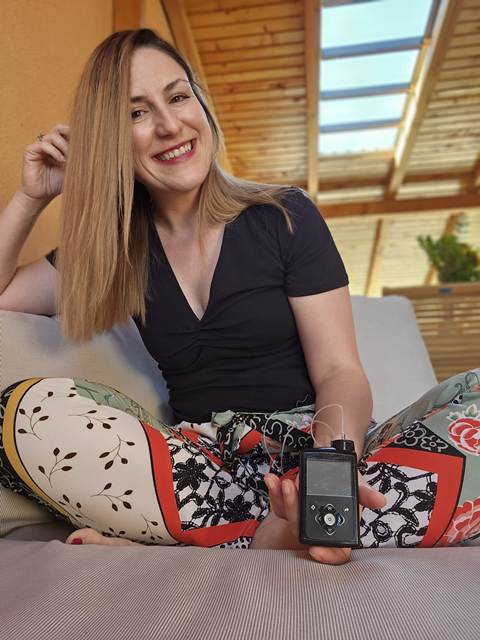Type 1 Diabetes Has Never Been Just a Number on a Glucometer. Diabetes is a condition that tests your physical endurance—but even more, your mental strength. While the numbers jump, drop, and take you on an emotional rollercoaster, you know that no one truly sees that struggle. Except those who live the same way you do.
The Hidden Obstacles
The biggest barriers to managing diabetes well are not always numbers or therapies—they’re what lies behind them.

Here are some of the most common blockers I’ve recognized in my own experience and in working with others:
- Poor time management – constant rushing, skipped meals, forgotten checks, no room for planning
- Non-acceptance of the diagnosis – resistance to everything related to diabetes, sometimes even avoiding therapy, denial, or constant inner battles
- Fear of hypoglycemia – often leading to overeating, high blood sugars, and emotional exhaustion
- Diabetes as an excuse – when the condition becomes a reason not to move forward, even though deep inside you want better

Most of us start by changing insulin, therapy, corrections, diet, or carb counting. We test it for weeks, but something always pulls us back into that chaotic, vicious cycle of diabetes struggles. That’s because real change begins only when we look inward.
I invite you to listen to your inner voice. How do you talk to diabetes in your mind?
Simply ask yourself:
- Do I see diabetes as a punishment or a challenge?
- Do I feel anger because I have it?
- How often during the day do I think about blood sugar?
- Do I feel guilty after every “wrong” meal?
- Am I overwhelmed by the constant decisions?
- Do I ever praise myself for everything I do for my health and diabetes?

Where Does It Really Get Stuck?
The problem isn’t always knowledge.
It’s not that you “don’t know what to eat.”
The biggest blocker I’ve seen—in clients and in myself—has been poor time organization.
It sounds simple but is an endless source of frustration.
How many times have you skipped a meal because you were in a rush?
Forgotten to check your blood sugar because the day was chaotic?
Grabbed anything to eat because you “didn’t have time” to cook?
Maybe you’ve been postponing a checkup, a walk, or reflection for months—because the day never seems to stop.

Breaking the Cycle
1. Plan meals in advance
Probably the most important tip: plan the day before, or on the weekend for the whole week. When you know what you’ll eat, you know when to take insulin and you avoid stress and mistakes. If you lack ideas, create three rotating meal plans and keep them printed nearby. Start with your 10 favorite meals and adapt them—lower the glycemic index, but keep them dishes you love.
2. Usetechnology
Set phone alarms as reminders—for meals, glucose checks, reflection. You don’t have to remember everything. Try apps like xDrip or MySugr, or just basic alarms. Let technology help, not burden you. If you’re not into tech, involve the people around you—let someone be your “alarm.” Sometimes simply opening up to others brings relief, because you’ve admitted the struggle.
3. Batch cooking
One hour on the weekend can give you three days of peace. Prepare a base: cooked millet or quinoa, roasted sweet potatoes, eggs, lentils, stews, hummus. Mix, freeze, reheat. That’s what structure looks like. That’s self-care.
4. Weekly reflection
Sit down and review your numbers or diary—not daily, just occasionally—to gain insight. Not to punish yourself, but to see patterns. When do you spike? When do you drop? When did you feel calm? Write it down—use a notebook, a spreadsheet, an app. Track without guilt, but with honesty. If something prevents you from doing this, revisit the blocker list above. Maybe your challenge isn’t time management after all.

Proven Time-Management Tools
SMART goals – because you don’t have to do everything at once
Sometimes it’s enough to say: “Today I’ll give myself credit for eating breakfast on time.”
SMART helps you aim for progress, not perfection:
- S – Specific: “I will check my blood sugar before lunch.”
- M – Measurable: “I want five nights in a row with glucose under 8 mmol/L before bedtime.”
- A – Achievable: “I’ll add one snack because I keep going low.”
- R – Relevant: “I feel less exhausted when I eat regularly.”
- T – Time-bound: “I’ll track this for seven days and then review.”
Eisenhower matrix – for days when everything feels “urgent”
This technique helps you sort tasks:
- Important & urgent – Take insulin, check blood sugar.
- Important, not urgent – Prepare a healthy meal, schedule a checkup.
- Urgent, not important – Reply to every message right away.
- Neither important nor urgent – Endless scrolling, hours of random Googling.
From Personal Experience
I’ve lived with diabetes for 32 years. No two days are the same.
During this time, I’ve had periods of exhaustion, doubt, and burnout—many times over.
Everything I share here I’ve tested on myself and adapted for many clients on their own diabetes journeys.
With diabetes, there is rarely a “perfect” day.
But there are days when you know you’ve taken care of yourself—and that is already a huge success.
Although it sometimes feels like diabetes management demands enormous effort and preparation—and that’s exactly why we often delay it—the reality is that it can be much simpler.
Try applying one of these methods to help diabetes become part of your daily routine, like brushing your teeth.
It doesn’t have to be a massive, exhausting obligation.
It doesn’t have to be a “special project” that drains your energy.
And do you know why?
Because your time is precious — and you deserve to live well.
Author: Ivana Jurakić







